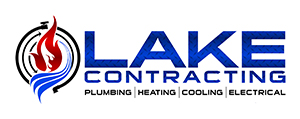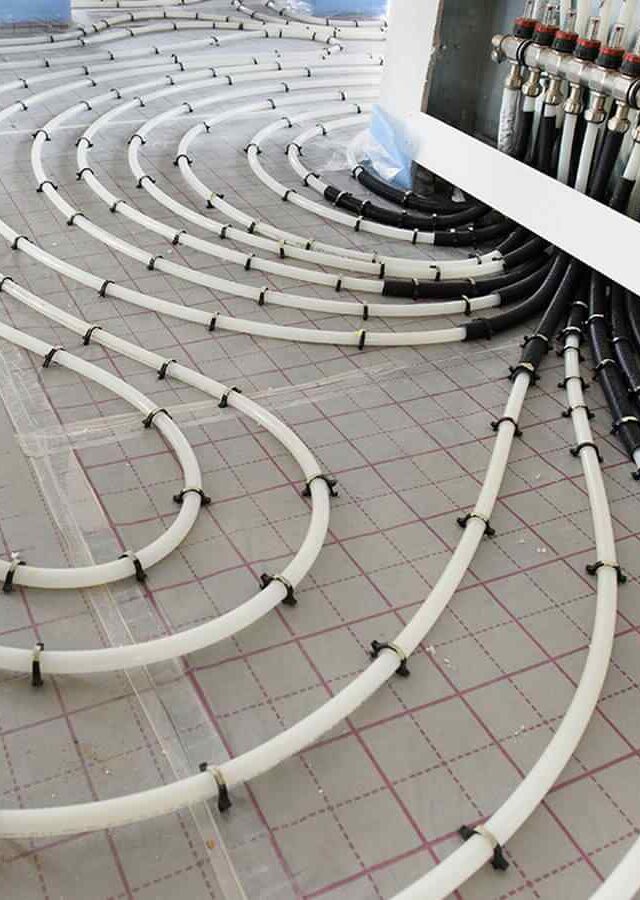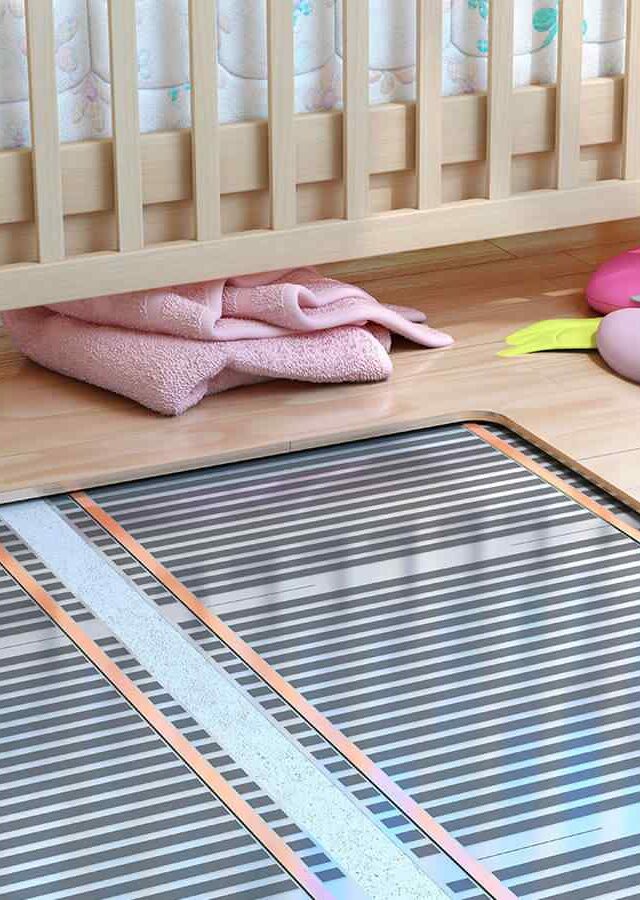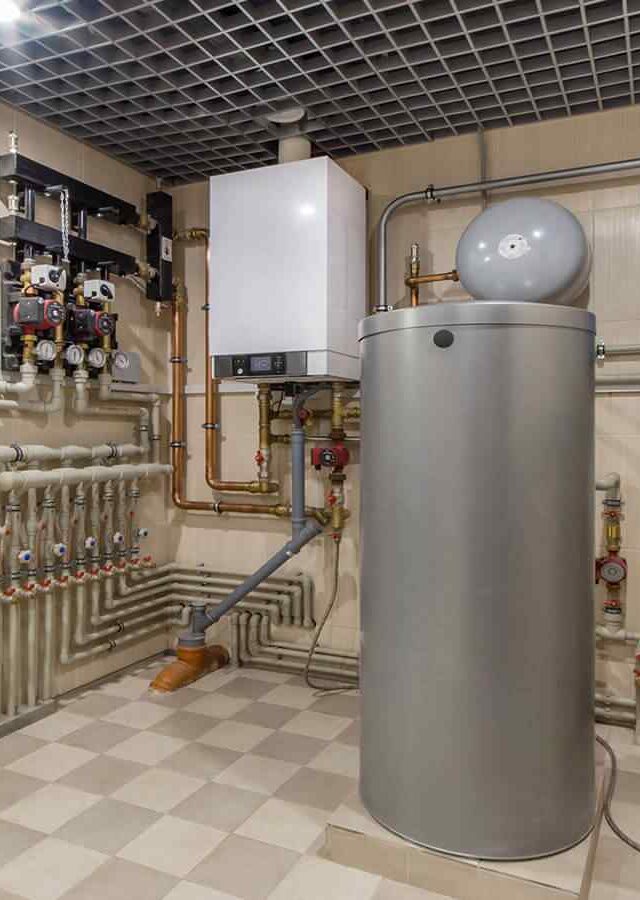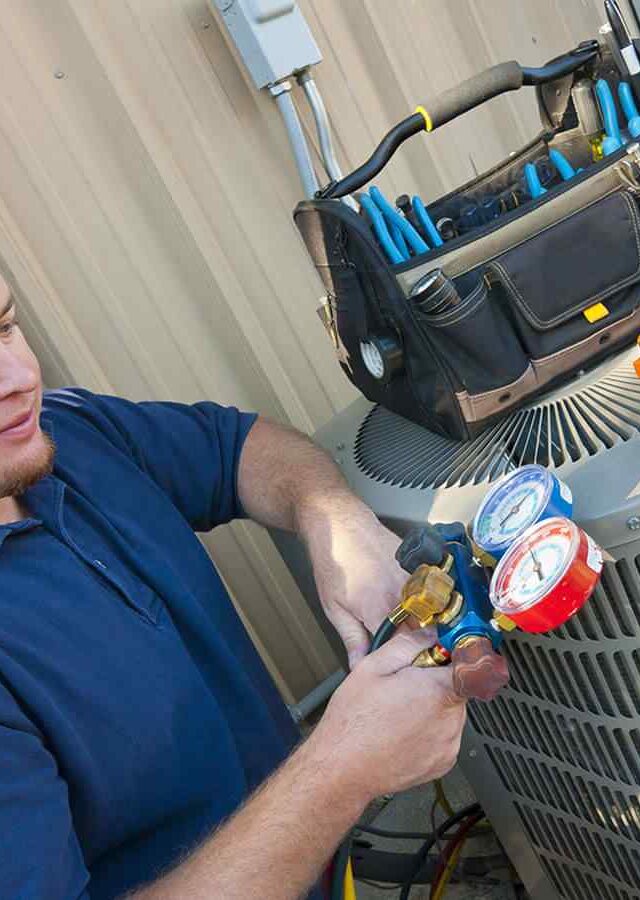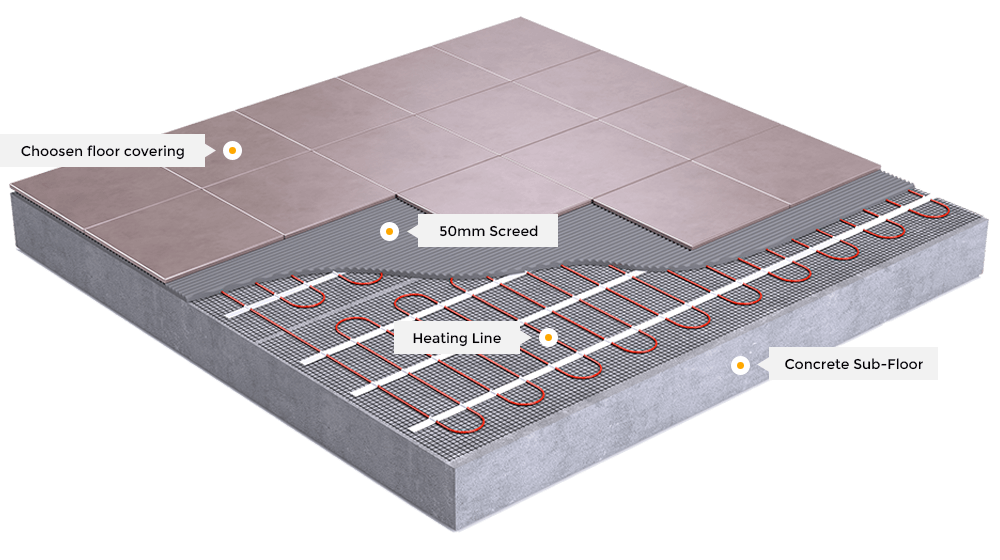HomeA Extra Elements
Some benefits of underfloor
heating systems
Phasellus congue purus sed scelerisque.
EASY TO INSTALL
Uisque molestie, arcu et iaculis mollis orci lacus facilisis pede, non euismod arcu ante quis massa ea tamquam salutandi nec.
IT GETS WARM, AND QUICK
Morbi eget libero ac tortor fringilla faucibus. Cras dolor integer sapien quisque fringilla vivamus sed lacus id urna facilisis tempus.
LOW MAINTENANCE
Feugiat consectetuer ne mea, exerci accusata at eam, gloriatur vituperata no sea. Mazim fabellas salutandi mea cu omnes.
SUPERIOR ALL ROUND COMFORT
Et legimus adipisci his. Vocent facilisis theophrastus et sed. Ea ignota mnesarchum intellegam qui verear neglegentur.
CAN BE USED WITH MOST FLOOR SURFACES
His ullum latine accusamus ad, veritus detracto postulant mea id. Qui no tale mollis, quem sumo persius at eos nonumy.
PET FRIENDLY
Pri doming scripserit eu, eos falli apeirian gubergren ut. Et has sanctus dolores abhor, ius quas recusabo no at sit propriae ad eum.
So how are you supposed to know when it's time to replace your air conditioner?
Your air conditioner is more than 10 years old
In general, you can expect a well-maintained air conditioner to last about 10-15 years. However, if you're in need of expensive repairs and your air conditioner is more than 10+ years (and uses R-22 Freon) it will often make more sense to replace it. This is especially true when you consider the advancements in efficiency with AC systems in the past decade alone.
Your air conditioner uses R-22 Freon
The production of Freon was phased out by the federal government on January 1, 2020. This popular HCFC-22 (R-22) refrigerant can still be added to your AC system when needed but it is very costly. This cost of Freon along with the cost of repairs should help you make your decision. If your air conditioner uses Freon, you'll have to replace it eventually in order to switch over to the current R410A refrigerant.
You notice your air conditioner is inefficient
If your air conditioner has a low SEER rating, it can cost you a lot of money to operate. Currently, newly manufactured air conditioners must have a SEER rating of at least 14. If your air conditioner's SEER rating is below 14, you can cut back on your energy costs by replacing it with a new, more efficient unit. A new high-efficiency system can help you save up to 40% on cooling costs. Have a technician help you make that determination.
You're facing expensive repairs
Any time you're facing an expensive air conditioning system repair, you'll want to weigh the costs of the repair against the cost of a new unit. If the cost of the repair would cover a large part of a new system, and especially if your air conditioner is showing any of the other signs on this list, it will likely make more financial sense to replace it.
You've had frequent breakdowns
Constant repairs to your air conditioner can quickly add up and it doesn't make sense to keep making them on older units. Save yourself the headaches and the money by investing in a new unit.
Your home isn't as comfortable as it used to be
If you have a hard time keeping your home cool, this could be a sign of an aging air conditioner or even an incorrectly sized system. Your home's air conditioner is supposed to remove humidity from the air because humidity makes the space more uncomfortable. When it functions properly, the unit will maintain consistent temperatures throughout the house. When the cooling portion of your HVAC system isn't able to do these things, either your equipment is malfunctioning or there are issues with your ductwork.
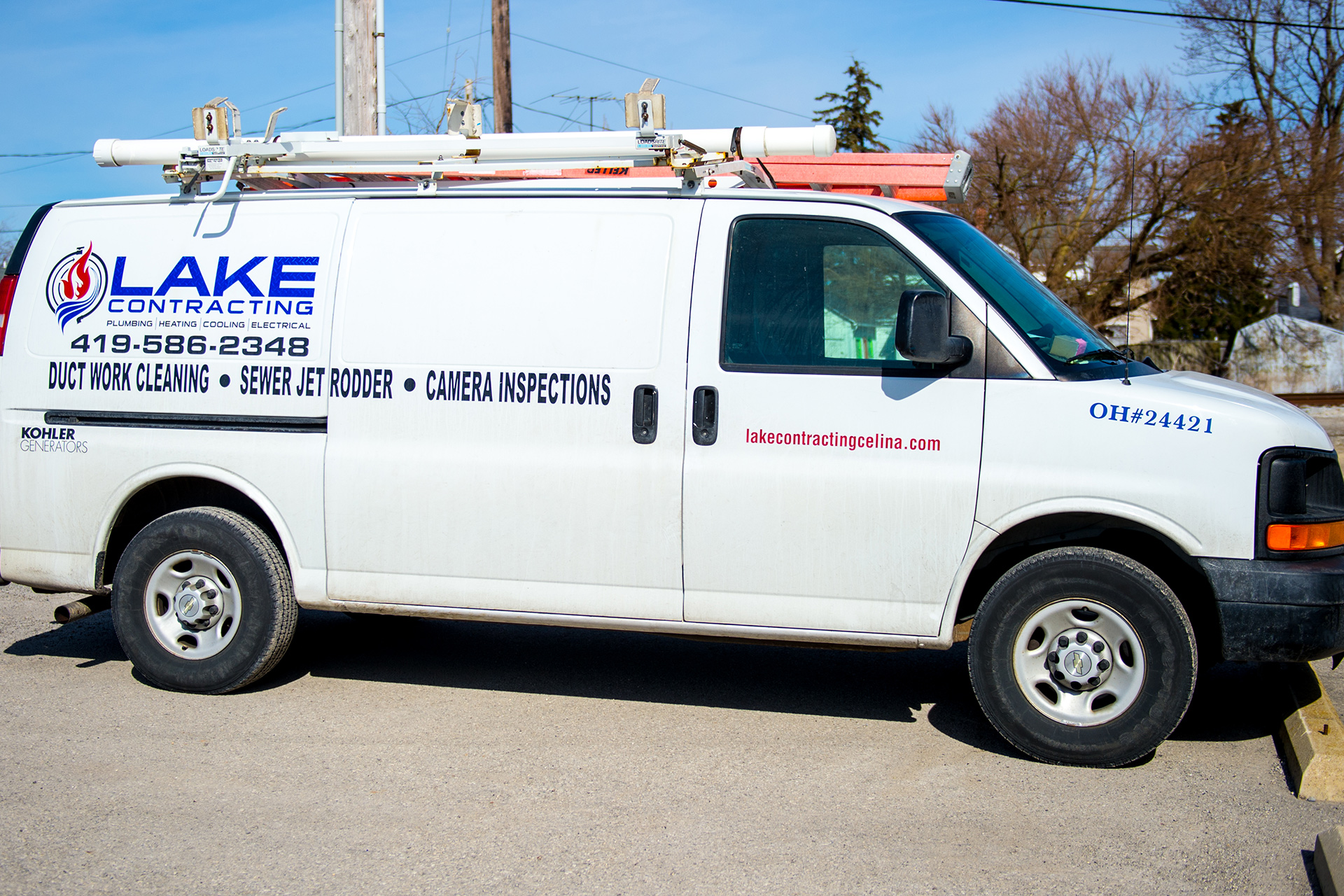
419-586-2348
24/7 Emergency Services are available for the following:
Heating and Air Conditioning Operational Issues
If your heating/air conditioning system was installed by Lake Contracting and you are in good standing with us, we provide 24/7 assistance with repairs to that system.
Smoke or Carbon Monoxide Present in the Home
If your smoke or carbon monoxide detectors are sounding off, call the fire department if necessary. If your carbon monoxide detectors are sounding off, get your family out of the house immediately and open your windows to let the carbon monoxide escape from your home. If you suspect the leak is a result of a faulty furnace, call Lake Contracting for assistance.
Gas Leak
If you smell gas in your home or you've been notified of a leak, call the fire department immediately and get out of your home. Call Lake Contracting if you suspect the leak is HVAC related.
Water Heater Operational Issues
Water Leak
Plugged Sewer
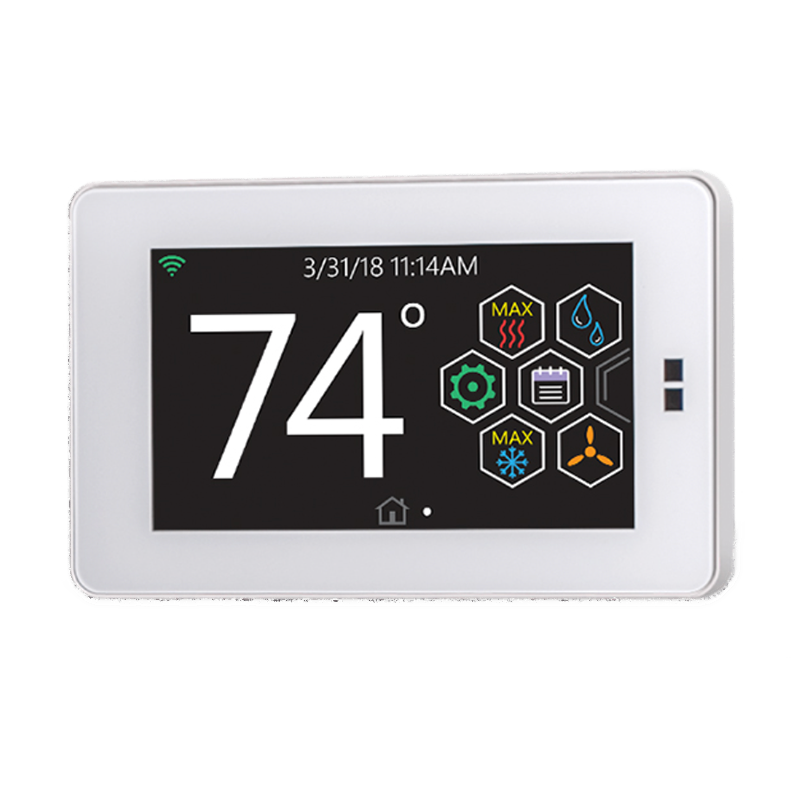
Hx™3 COMMUNICATING ZONING SYSTEM
ControlsMomentum™ Smart Thermostats
Stay comfortably connected to your home comfort system - from anywhere. Smartphone-based, Wi-Fi capable touch-screen thermostats with proprietary hexagon interface can be controlled virtually anywhere with internet access via our Thermostat app.
Features
4.3-inch touch-screen
Wi-Fi capable
Voice control using Amazon Alexa
Up to 4-heat and 2-cool stages
ENERGY STAR® certified
5-year limited warranty
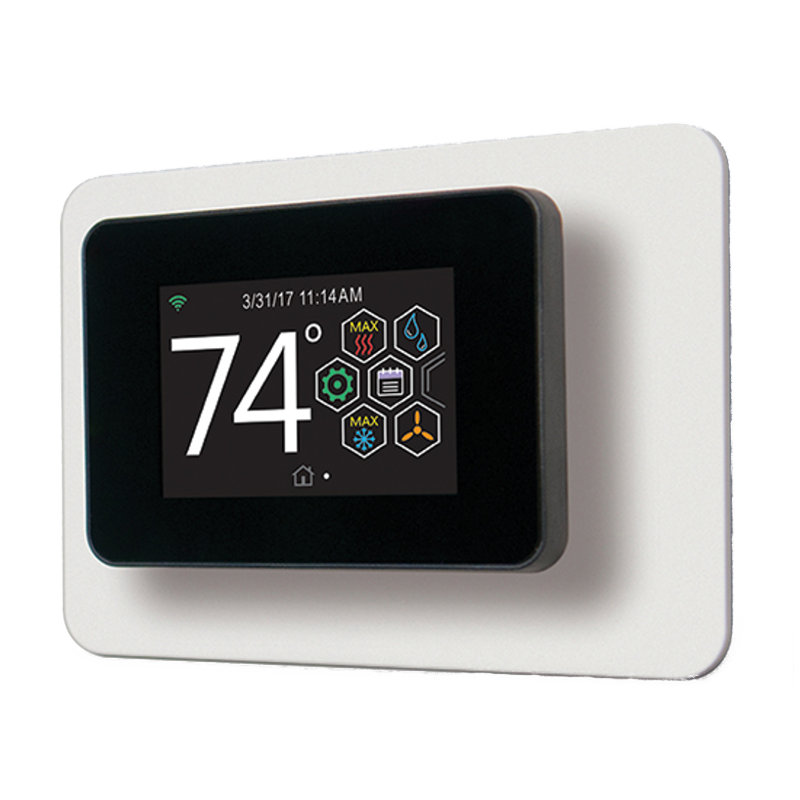
ControlsMomentum™ Smart Thermostats
Stay comfortably connected to your home comfort system - from anywhere. Smartphone-based, Wi-Fi capable touch-screen thermostats with proprietary hexagon interface can be controlled virtually anywhere with internet access via our Thermostat app.
Features
2.8-inch touch-screen
Wi-Fi capable
Voice control using Amazon Alexa
Up to 4-heat and 2-cool stages
ENERGY STAR® certified
5-year limited warranty
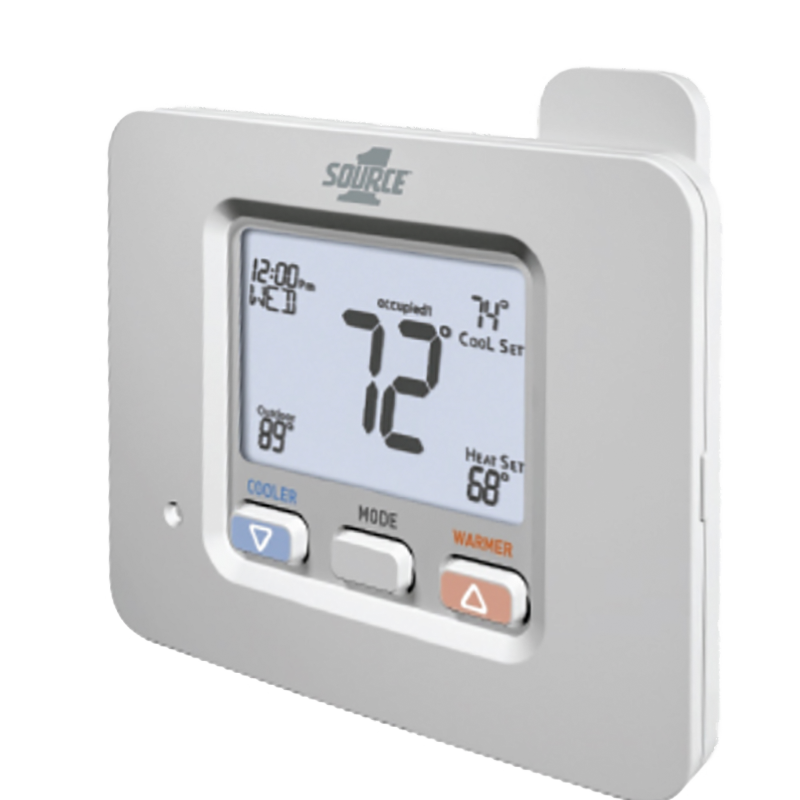
ControlsSource 1® LX Series Thermostat
For a digital programmable thermostat with precise, 7-day temperature control that perfectly matches your schedule, nothing beats the Champion® LX Series Thermostat.
Features
Up to 3-heat and 2-cool stages
5-year limited warranty
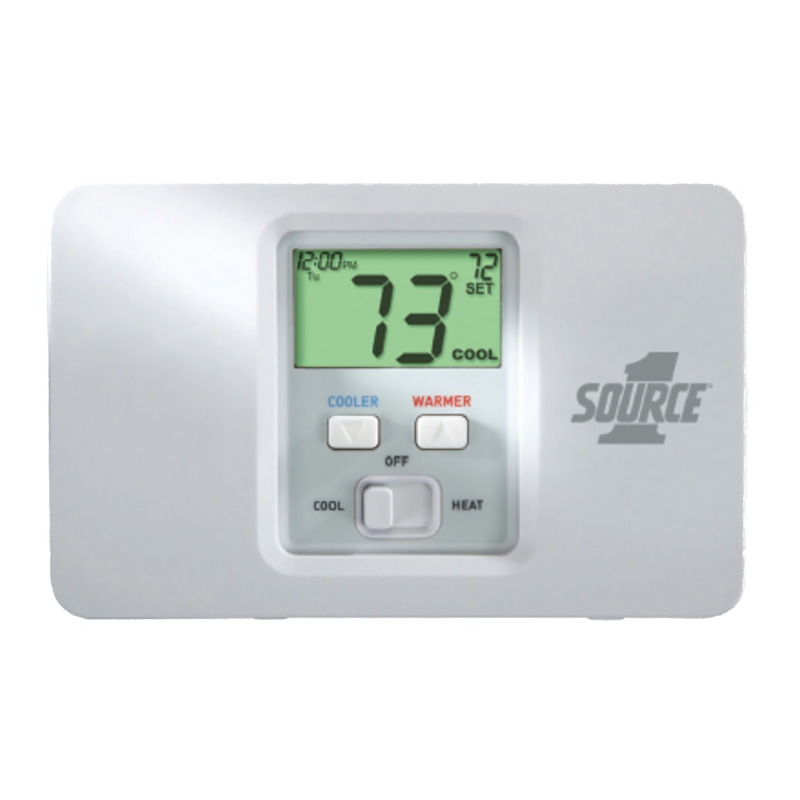
ControlsSource 1® THE Thermostat
Get a digital thermostat for easy, precise temperature control to maintain your perfect degree of comfort with the THE Thermostat.
Features
Up to 2-heat and 2-cool stages
1-year limited warranty
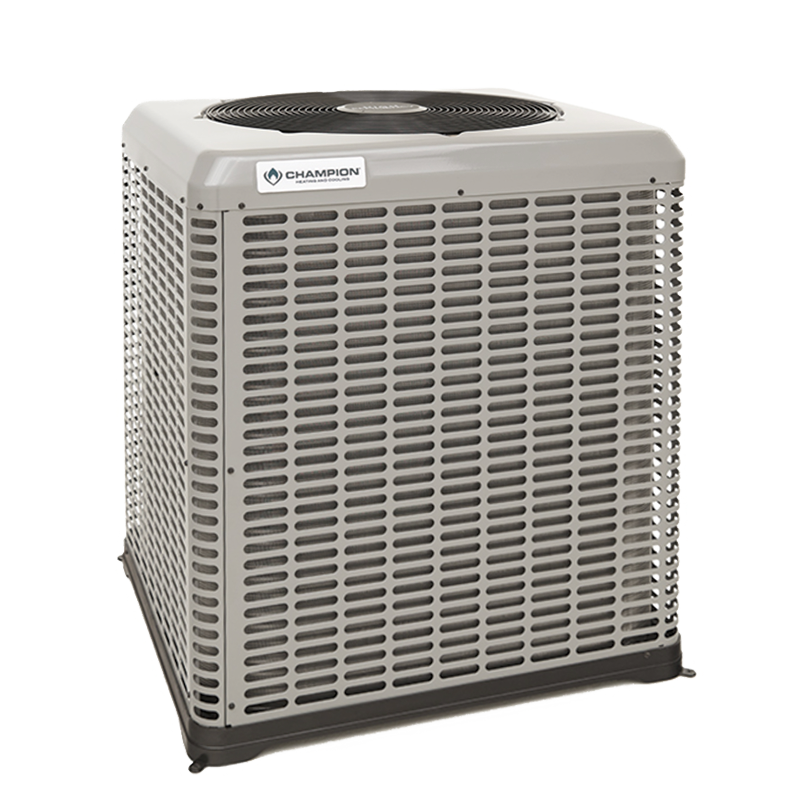
Hx™3 COMMUNICATING ZONING SYSTEM
Split System Heat PumpsMomentum™ Split System
Momentum™ split system heat pumps that are ENERGY STAR® qualified offer higher energy efficiency than standard models. Innovative technologies in select models and industry-leading warranties on all Momentum™ heat pumps make these units the most reliable and advanced in our history.
HL20
Up to 20.0 SEER/11 HSPF efficiency rating
Variable-capacity compressor
ShadowDrive™ comfort system
Charge Guard™
Climate Mark™
Lifetime Compressor Limited Warranty
10-year Parts Limited Warranty
ENERGY STAR® Most Efficient 2020 Certified

Hx™3 COMMUNICATING ZONING SYSTEM
Split System Heat PumpsMomentum™ Split System
Momentum™ split system heat pumps that are ENERGY STAR® qualified offer higher energy efficiency than standard models. Innovative technologies in select models and industry-leading warranties on all Momentum™ heat pumps make these units the most reliable and advanced in our history.
HL19
Up to 19.0 SEER/10.0 HSPF efficiency rating
Two-stage compressor
EnviroTrak™ blower fine-tuning
Lifetime Compressor Limited Warranty
10-year Parts Limited Warranty
ENERGY STAR® Certified
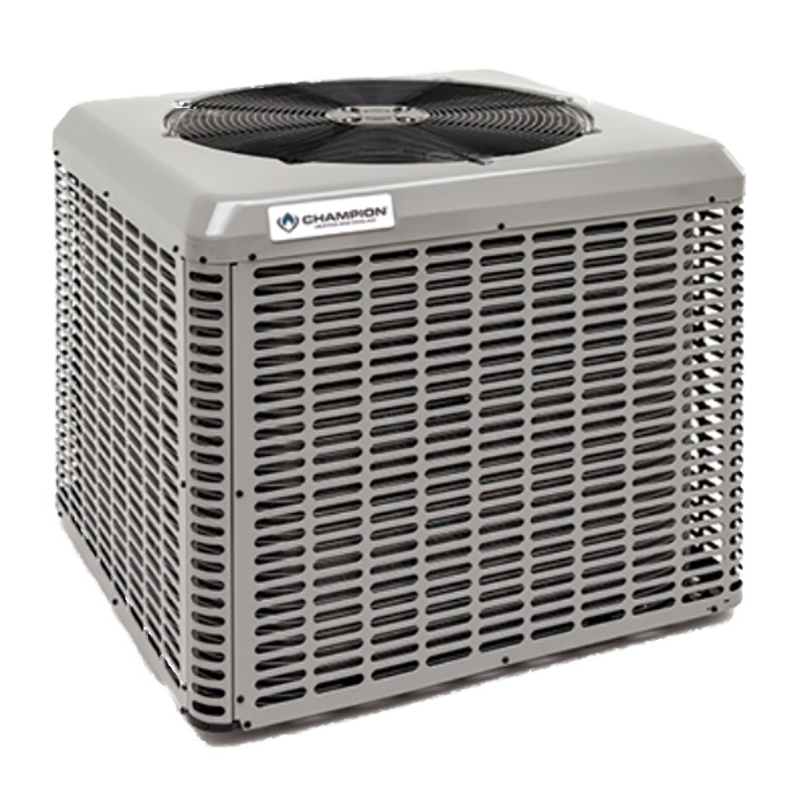
Split System Heat PumpsLX Series Split System
LX Series split system heat pumps fit your needs and reduce your utility bills with verified quality that ensures reliable, all-season performance.
TH6
Up to 17.0 SEER/10.0 HSPF efficiency rating
Single-stage compressor
Tube-in fin coil
Demand defrost
10-year Compressor Limited Warranty
10-year Parts Limited Warranty
ENERGY STAR® Certified

Split System Heat PumpsLX Series Split System
LX Series split system heat pumps fit your needs and reduce your utility bills with verified quality that ensures reliable, all-season performance.
TH16
Up to 17.75 SEER/10.0 HSPF efficiency rating
Inverter-driven modulating technology
Tube-in fin coil
Demand defrost
10-year Compressor Limited Warranty
10-year Parts Limited Warranty

Split System Heat PumpsLX Series Split System
LX Series split system heat pumps fit your needs and reduce your utility bills with verified quality that ensures reliable, all-season performance.
TH4
Up to 14.0 SEER/8.2 HSPF efficiency rating
Single- and three-phase models available
Demand defrost
10-year Compressor Limited Warranty
10-year Parts Limited Warranty
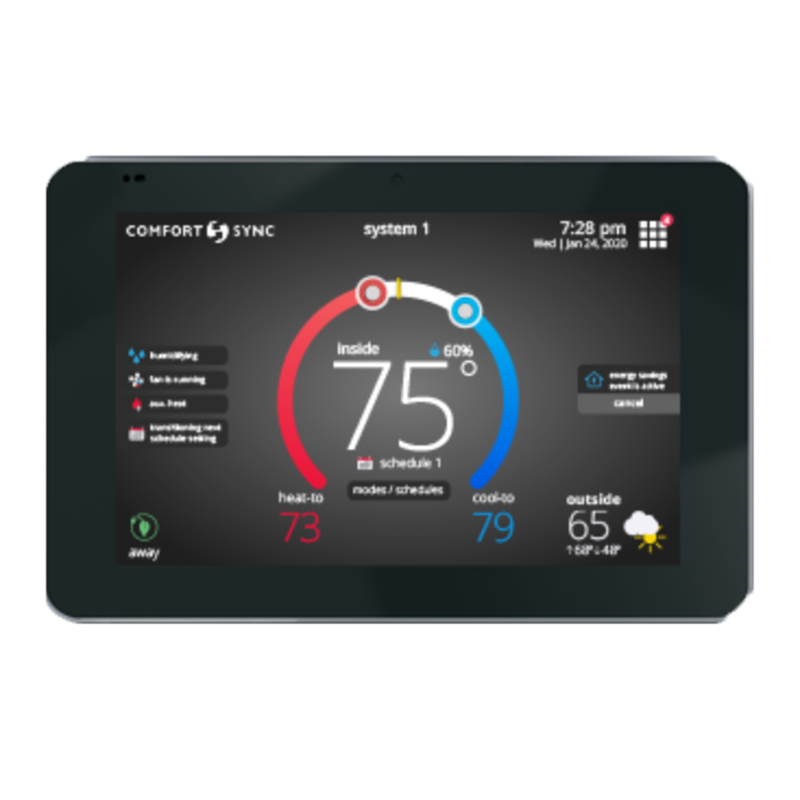
PRO SERIES
ControlsComfort Sync A3 Thermostat
The Comfort Sync A3 Thermostat stays in contact with the entire system to monitor performance and help ensure optimal operation. With Comfort Sync® zoning, your home is divided in up to 4 areas, or zones, each with individualized control. So everyone gets their own "sweet spot."
Features
App Controlled
Voice Activated
Allergy Sync™
Away Sync™
Schedule Sync™
Climate Sync™
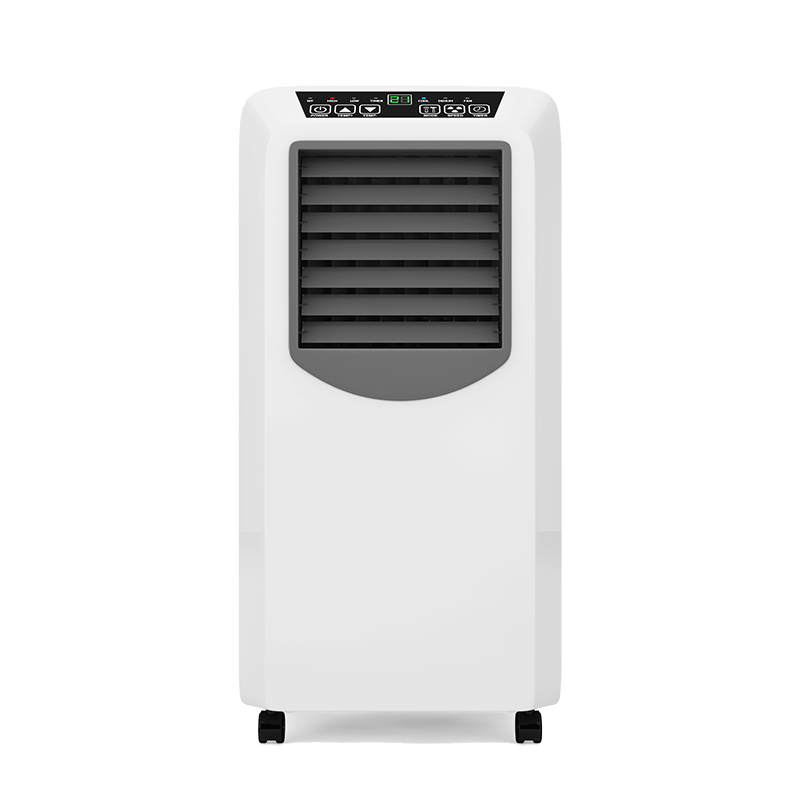
PRO SERIES
Heat PumpsVariable-Capacity Performance
Unlike conventional heat pumps that are either all the way on or all the way off, the Variable-Capacity Inverter-Driver Scroll Compressor adjusts cooling output in small increments like a dimmer switch.
4SHP20LX
Up to 20.0 SEER Efficiency Rating
Up to 10.0 HSPF Efficiency Rating
Comfort Sync® A3 Enabled
True Variable-Capacity Cooling
Integrated Compressor Protection
ENERGY STAR® Certified

PRO SERIES
Heat PumpsTwo-Stage Performance
Two different output speeds for heating and two for cooling allow AirEase heat pumps to keep you comfortable month after month.
4SHP16LS
Up to 16.0 SEER Efficiency Rating
Up to 8.5 HSPF Efficiency Rating
Comfort Sync® A3 Enabled
Two-Stage Scroll Compressor
ENERGY STAR® Certified

Heat PumpsSingle-Stage Performance
Whether it's warm or cool, you'll be perfectly comfortable with these reliable heat pumps.
4SHP16LE
Up to 16.0 SEER Efficiency Rating
Up to 9.5 HSPF Efficiency Rating
Omniguard® Total Corrosion Protection Technology
Heavy Duty Compressor Blanket
ENERGY STAR® Certified

Heat PumpsSingle-Stage Performance
Whether it's warm or cool, you'll be perfectly comfortable with these reliable heat pumps.
4SHP15LE
Up to 15.0 SEER Efficiency Rating
Up to 8.5 HSPF Efficiency Rating
Omniguard® Total Corrosion Protection Technology
Heavy Duty Compressor Blanket
ENERGY STAR® Certified

Heat PumpsSingle-Stage Performance
Whether it's warm or cool, you'll be perfectly comfortable with these reliable heat pumps.
4SHP14LB
Up to 15.0 SEER Efficiency Rating
Up to 8.5 HSPF Efficiency Rating
Omniguard® Total Corrosion Protection Technology
ENERGY STAR® Certified

Hx™3 COMMUNICATING ZONING SYSTEM
ControlsMomentum™ Smart Thermostats
Stay comfortably connected to your home comfort system - from anywhere. Smartphone-based, Wi-Fi capable touch-screen thermostats with proprietary hexagon interface can be controlled virtually anywhere with internet access via our Thermostat app.
Features
4.3-inch touch-screen
Wi-Fi capable
Voice control using Amazon Alexa
Up to 4-heat and 2-cool stages
ENERGY STAR® certified
5-year limited warranty

ControlsMomentum™ Smart Thermostats
Stay comfortably connected to your home comfort system - from anywhere. Smartphone-based, Wi-Fi capable touch-screen thermostats with proprietary hexagon interface can be controlled virtually anywhere with internet access via our Thermostat app.
Features
2.8-inch touch-screen
Wi-Fi capable
Voice control using Amazon Alexa
Up to 4-heat and 2-cool stages
ENERGY STAR® certified
5-year limited warranty

ControlsSource 1® LX Series Thermostat
For a digital programmable thermostat with precise, 7-day temperature control that perfectly matches your schedule, nothing beats the Champion® LX Series Thermostat.
Features
Up to 3-heat and 2-cool stages
5-year limited warranty

ControlsSource 1® THE Thermostat
Get a digital thermostat for easy, precise temperature control to maintain your perfect degree of comfort with the THE Thermostat.
Features
Up to 2-heat and 2-cool stages
1-year limited warranty
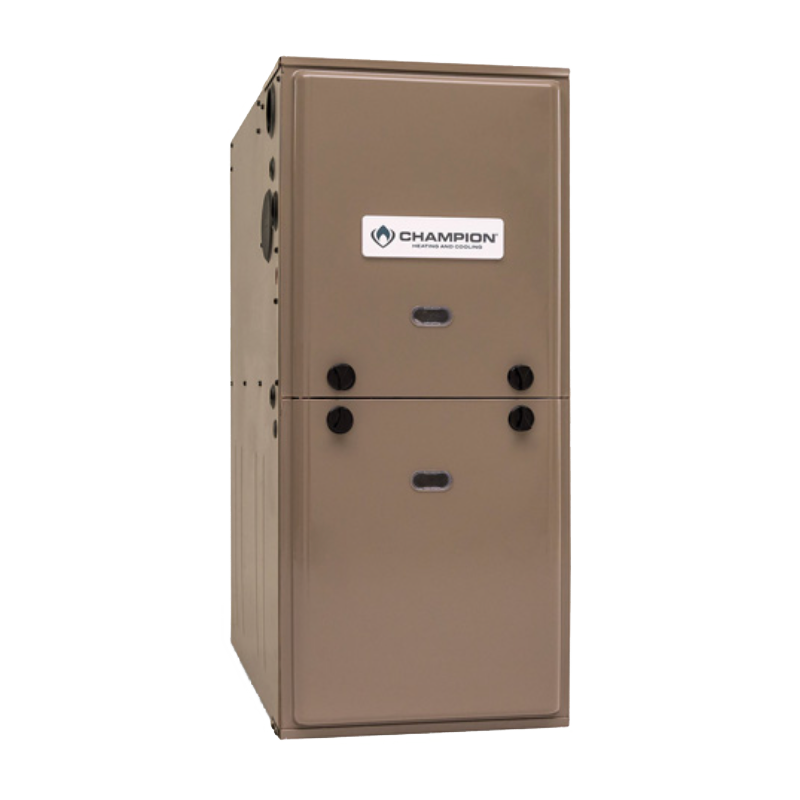
Hx™3 COMMUNICATING ZONING SYSTEM
Gas FurnacesMomentum™ Gas Furnaces
Momentum™ Series gas furnaces that are Energy Star qualified offer at least 15% to 25% higher energy efficiency than standard models - plus the innovative EnviroTrak™ Comfort System creates an operating cycle that works best for your locale.
TP9C
Up to 98% AFUE efficiency
Variable-speed ECM fan motor
Modulating burner design continuously adjust heating level in small increments to match the degree of comfort you need
EnviroTrak™ comfort system
Lifetime heat exchanger limited warranty
10-year parts limited warranty
10-year Complete Assurance™ warranty pledge
ENERGY STAR® certified

Hx™3 COMMUNICATING ZONING SYSTEM
Gas FurnacesMomentum™ Gas Furnaces
Momentum™ Series gas furnaces that are Energy Star qualified offer at least 15% to 25% higher energy efficiency than standard models - plus the innovative EnviroTrak™ Comfort System creates an operating cycle that works best for your locale.
TPLC
Up to 80% AFUE efficiency
Variable-speed ECM fan motor
Modulating burner design continuously adjust heating level in small increments to match the degree of comfort you need
EnviroTrak™ comfort system
Lifetime heat exchanger limited warranty
10-year parts limited warranty
10-year Complete Assurance™ warranty pledge
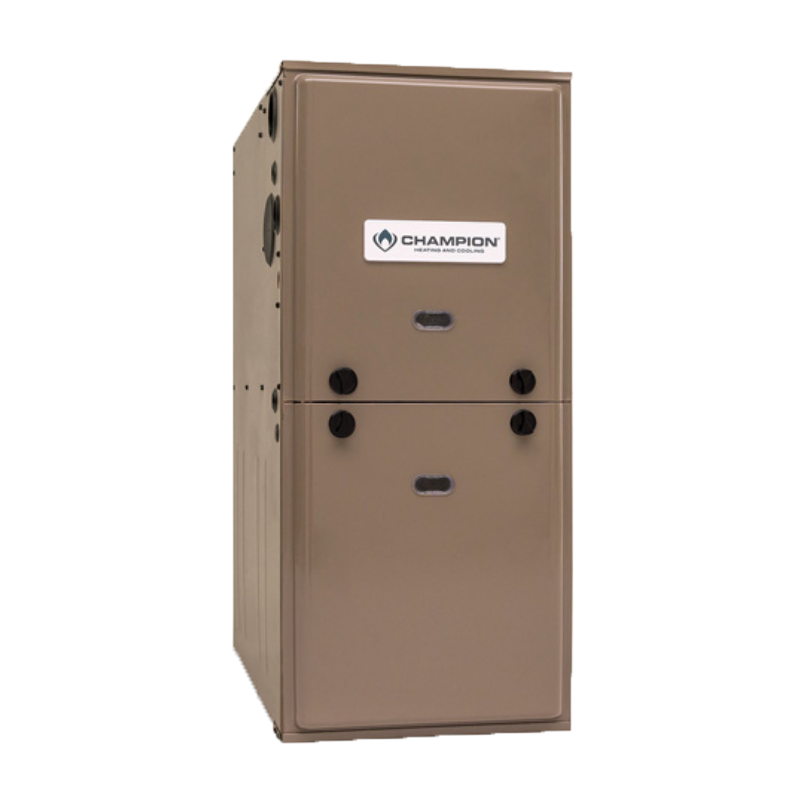
Gas FurnacesLX Series Gas Furnaces
Advanced LX Series furnaces fit your needs with high efficiency models that reduce your utility bills. A Compact 33-inch cabinet will fit into your home with room to spare.
TM9Y
Up to 96% AFUE efficiency
Standard ECM motor
Two-stage burner
Multi-position
Lifetime heat exchanger limited warranty
10-year parts limited warranty
5-year Complete Assurance™ warranty pledge
ENERGY STAR® certified

Gas FurnacesLX Series Gas Furnaces
Advanced LX Series furnaces fit your needs with high efficiency models that reduce your utility bills. A Compact 33-inch cabinet will fit into your home with room to spare.
TM8Y
Up to 80% AFUE efficiency
Standard ECM motor
Two-stage burner
Multi-position
Lifetime heat exchanger limited warranty
10-year parts limited warranty
5-year Complete Assurance™ warranty pledge

Gas FurnacesLX Series Gas Furnaces
Advanced LX Series furnaces fit your needs with high efficiency models that reduce your utility bills. A Compact 33-inch cabinet will fit into your home with room to spare.
TM9E
Up to 95% AFUE efficiency
Standard ECM motor
Proven single-stage burner
Multi-position
Lifetime heat exchanger limited warranty
10-year parts limited warranty
5-year Complete Assurance™ warranty pledge

Hx™3 COMMUNICATING ZONING SYSTEM
Gas FurnacesLX Series Gas Furnaces
Advanced LX Series furnaces fit your needs with high efficiency models that reduce your utility bills. A Compact 33-inch cabinet will fit into your home with room to spare.
TM9V
Up to 96% AFUE efficiency
Variable-speed ECM motor
Two-stage burner
Multi-position
Lifetime heat exchanger limited warranty
10-year parts limited warranty
5-year Complete Assurance™ warranty pledge
ENERGY STAR® certified

Hx™3 COMMUNICATING ZONING SYSTEM
Gas FurnacesLX Series Gas Furnaces
Advanced LX Series furnaces fit your needs with high efficiency models that reduce your utility bills. A Compact 33-inch cabinet will fit into your home with room to spare.
TM8V
Up to 80% AFUE efficiency
Variable-speed ECM motor
Two-stage burner
Multi-position available
Lifetime heat exchanger limited warranty
10-year parts limited warranty
5-year Complete Assurance™ warranty pledge

Gas FurnacesLX Series Gas Furnaces
Advanced LX Series furnaces fit your needs with high efficiency models that reduce your utility bills. A Compact 33-inch cabinet will fit into your home with room to spare.
TM8E
Up to 80% AFUE efficiency
High efficiency blower motor
Single-stage burner
Multi-position models available
Lifetime heat exchanger limited warranty
10-year parts limited warranty
5-year Complete Assurance™ warranty pledge

Gas FurnacesLX Series Gas Furnaces
Advanced LX Series furnaces fit your needs with high efficiency models that reduce your utility bills. A Compact 33-inch cabinet will fit into your home with room to spare.
TL8E
Up to 80% AFUE efficiency
Ultra-low NOx with high efficiency blower motor
20-year heat exchanger limited warranty
10-year parts limited warranty
5-year Complete Assurance™ warranty pledge

Gas FurnacesLX Series Gas Furnaces
Advanced LX Series furnaces fit your needs with high efficiency models that reduce your utility bills. A Compact 33-inch cabinet will fit into your home with room to spare.
TL9E
Up to 95% AFUE efficiency
Ultra-low NOx with high efficiency blower motor
20-year heat exchanger limited warranty
10-year parts limited warranty
5-year Complete Assurance™ warranty pledge
ENERGY STAR® certified

PRO SERIES
ControlsComfort Sync A3 Thermostat
The Comfort Sync A3 Thermostat stays in contact with the entire system to monitor performance and help ensure optimal operation. With Comfort Sync® zoning, your home is divided in up to 4 areas, or zones, each with individualized control. So everyone gets their own "sweet spot."
Features
App Controlled
Voice Activated
Allergy Sync™
Away Sync™
Schedule Sync™
Climate Sync™

PRO SERIES
Gas FurnacesVariable Speed Blower & Multi Stage Performance
AirEase's most advanced furnaces deliver the highest number of features, the most comfort and the greatest efficiency.
A97MV
Up to 97% AFUE Efficiency Rating
Comfort Sync® A3 Enabled
Modulating Heat
Stainless Steel Heat Exchanger
Ultra Low NOx model available
ENERGY STAR® Most Efficient 2020

PRO SERIES
Gas FurnacesVariable Speed Blower & Multi Stage Performance
AirEase's most advanced furnaces deliver the highest number of features, the most comfort and the greatest efficiency.
A962V
96% AFUE Efficiency Rating
Comfort Sync® A3 Enabled
Two-Stage Heating
Variable Speed Fan Motor
ENERGY STAR® Certified

PRO SERIES
Gas FurnacesVariable Speed Blower & Multi Stage Performance
AirEase's most advanced furnaces deliver the highest number of features, the most comfort and the greatest efficiency.
A802V
80% AFUE Efficiency Rating
Comfort Sync® A3 Enabled
Two-Stage Heating
Variable Speed Fan Motor
Aluminized Steel Heat Exchanger
Ultra Low NOx model available

Gas FurnacesConstant Torque Blower & Single-Stage Performance
For the perfect balance between performance and value, look to AirEase furnaces with constant torque motors.
A962E
Up to 96% AFUE Efficiency Rating
Two-Stage Heating
Constant Torque Motor
ENERGY STAR® Certified

Gas FurnacesConstant Torque Blower & Single-Stage Performance
For the perfect balance between performance and value, look to AirEase furnaces with constant torque motors.
A951E
95% AFUE Efficiency Rating
Stainless Steel Heat Exchanger
Constant Torque Motor
ENERGY STAR® Certified

Gas FurnacesConstant Torque Blower & Single-Stage Performance
For the perfect balance between performance and value, look to AirEase furnaces with constant torque motors.
A931E
93% AFUE Efficiency Rating
Constant Torque Motor

Gas FurnacesConstant Torque Blower & Single-Stage Performance
For the perfect balance between performance and value, look to AirEase furnaces with constant torque motors.
A801E
Up to 80% AFUE Efficiency Rating
Constant Torque Motor
Aluminized Steel Heat Exchanger
Ultra Low NOx model available

Oil FurnacesVariable Speed Blower
Adjustable fan speeds mean higher efficiency, quieter operation and more consistent comfort.
L85BFV/RV
L85UFV
85% AFUE Efficiency Rating
Variable Speed Fan Motor

Oil FurnacesSingle-Stage Performance
Hardworking, dependable and efficient warmth, winter after winter.
L83UF
83% AFUE Efficiency Rating

Oil FurnacesSingle-Stage Performance
Hardworking, dependable and efficient warmth, winter after winter.
L83HF/R
83% AFUE Efficiency Rating

Oil FurnacesSingle-Stage Performance
Hardworking, dependable and efficient warmth, winter after winter.
L83BF/R
83% AFUE Efficiency Rating

Hx™3 COMMUNICATING ZONING SYSTEM
ControlsMomentum™ Smart Thermostats
Stay comfortably connected to your home comfort system - from anywhere. Smartphone-based, Wi-Fi capable touch-screen thermostats with proprietary hexagon interface can be controlled virtually anywhere with internet access via our Thermostat app.
Features
4.3-inch touch-screen
Wi-Fi capable
Voice control using Amazon Alexa
Up to 4-heat and 2-cool stages
ENERGY STAR® certified
5-year limited warranty

ControlsMomentum™ Smart Thermostats
Stay comfortably connected to your home comfort system - from anywhere. Smartphone-based, Wi-Fi capable touch-screen thermostats with proprietary hexagon interface can be controlled virtually anywhere with internet access via our Thermostat app.
Features
2.8-inch touch-screen
Wi-Fi capable
Voice control using Amazon Alexa
Up to 4-heat and 2-cool stages
ENERGY STAR® certified
5-year limited warranty

ControlsSource 1® LX Series Thermostat
For a digital programmable thermostat with precise, 7-day temperature control that perfectly matches your schedule, nothing beats the Champion® LX Series Thermostat.
Features
Up to 3-heat and 2-cool stages
5-year limited warranty

ControlsSource 1® THE Thermostat
Get a digital thermostat for easy, precise temperature control to maintain your perfect degree of comfort with the THE Thermostat.
Features
Up to 2-heat and 2-cool stages
1-year limited warranty

Hx™3 COMMUNICATING ZONING SYSTEM
Split System Air ConditionersMomentum™ Split System
Momentum™ split system air conditioners that are ENERGY STAR® Most Efficient qualified offer higher energy efficiency than standard models. Innovative technologies in select models include Charge Guard™, Climate Mark™ and ShadowDrive™ to make these units the most advanced in our history.
AL21
Up to 20.0 SEER efficiency rating
Variable-speed compressor
ShadowDrive™ comfort system
Charge Guard™
Climate Mark™
Lifetime Compressor Limited Warranty
10-year Parts Limited Warranty
ENERGY STAR® Most Efficient 2020 Certified

Hx™3 COMMUNICATING ZONING SYSTEM
Split System Air ConditionersMomentum™ Split System
Momentum™ split system air conditioners that are ENERGY STAR® Most Efficient qualified offer higher energy efficiency than standard models. Innovative technologies in select models include Charge Guard™, Climate Mark™ and ShadowDrive™ to make these units the most advanced in our history.
AL19
Up to 19.0 SEER efficiency rating
Two-stage compressor
ShadowDrive™ comfort system
Lifetime Compressor Limited Warranty
10-year Parts Limited Warranty
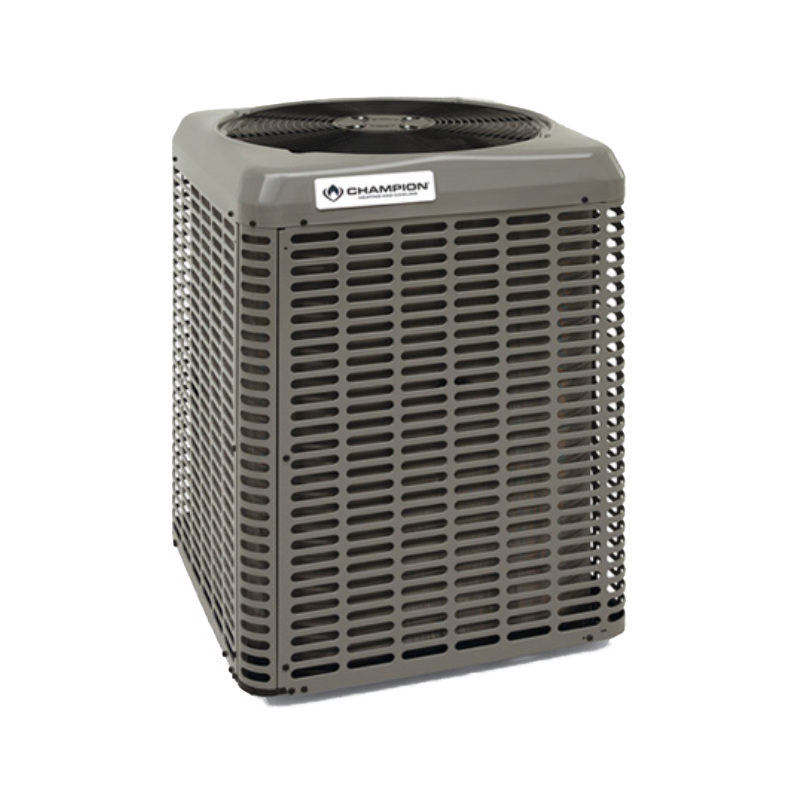
Split System Air ConditionersLX Series Split System
Advanced LX Series split system air conditioners reduce your utility bills and MicroChannel coil technology that provides more cooling in a smaller footprint.
TC17
Up to 17.0 SEER efficiency rating
Two-stage compressor
Tube-in fin coil
10-year Compressor Limited Warranty
10-year Parts Limited Warranty
ENERGY STAR® Certified

Split System Air ConditionersLX Series Split System
Advanced LX Series split system air conditioners reduce your utility bills and MicroChannel coil technology that provides more cooling in a smaller footprint.
TC7
Up to 17.0 SEER efficiency rating
Single- and three-phase
MicroChannel coil
10-year Compressor Limited Warranty
10-year Parts Limited Warranty
ENERGY STAR® Certified

Split System Air ConditionersLX Series Split System
Advanced LX Series split system air conditioners reduce your utility bills and MicroChannel coil technology that provides more cooling in a smaller footprint.
TC4
TW4
Up to 14.0 SEER efficiency rating
MicroChannel coil
10-year Compressor Limited Warranty
10-year Parts Limited Warranty

Split System Air ConditionersLX Series Split System
Advanced LX Series split system air conditioners reduce your utility bills and MicroChannel coil technology that provides more cooling in a smaller footprint.
TF4
Up to 14.0 SEER efficiency rating
Tube-in fin coil
10-year Compressor Limited Warranty
10-year Parts Limited Warranty

Split System Air ConditionersLX Series Split System
Advanced LX Series split system air conditioners reduce your utility bills and MicroChannel coil technology that provides more cooling in a smaller footprint.
TC3
Up to 13.0 SEER efficiency rating
Single- and three-phase
MicroChannel coil
10-year Compressor Limited Warranty
10-year Parts Limited Warranty

Split System Air ConditionersLX Series Split System
Advanced LX Series split system air conditioners reduce your utility bills and MicroChannel coil technology that provides more cooling in a smaller footprint.
TF3
Up to 13.0 SEER efficiency rating
Tube-in fin coil
10-year Compressor Limited Warranty
10-year Parts Limited Warranty

Split System Air ConditionersLX Series Split System
Advanced LX Series split system air conditioners reduce your utility bills and MicroChannel coil technology that provides more cooling in a smaller footprint.
TCHD
Up to 13.0 SEER efficiency rating
Select models available in three-phase
Ultra-compact outdoor cabinet
MicroChannel coil
10-year Compressor Limited Warranty
10-year Parts Limited Warranty

Split System Air ConditionersLX Series Split System
Advanced LX Series split system air conditioners reduce your utility bills and MicroChannel coil technology that provides more cooling in a smaller footprint.
TCHE
Up to 14.0 SEER efficiency rating
Select models available in three-phase
Ultra-compact outdoor cabinet
MicroChannel coil
10-year Compressor Limited Warranty
10-year Parts Limited Warranty

PRO SERIES
ControlsComfort Sync A3 Thermostat
The Comfort Sync A3 Thermostat stays in contact with the entire system to monitor performance and help ensure optimal operation. With Comfort Sync® zoning, your home is divided in up to 4 areas, or zones, each with individualized control. So everyone gets their own "sweet spot."
Features
App Controlled
Voice Activated
Allergy Sync™
Away Sync™
Schedule Sync™
Climate Sync™

PRO SERIES
Air ConditioningVariable-Capacity Performance
Unlike conventional air conditioners that are either all the way on or all the way off, the Variable-Capacity Inverter-Driver Scroll Compressor adjusts cooling output in small increments like a dimmer switch.
4SCU20LX
Up to 20.0 SEER Efficiency Rating
Comfort Sync® A3 Enabled
True Variable-Capacity Cooling
ENERGY STAR® Most Efficient 2020

PRO SERIES
Air ConditioningTwo-Stage Performance
With two different cooling output speeds, these exceptional performers offer the ideal balance between smart energy use and serious comfort.
4SCU16LS
Up to 16.0 SEER Efficiency Rating
Comfort Sync® A3 Enabled
Two-Stage Scroll Compressor
ENERGY STAR® Certified

Air ConditioningSingle-Stage Performance
Enjoy consistent, reliable cooling and a home full of refreshing air.
4SCU16LE
Up to 16.0 SEER Efficiency Rating
Single-Stage Compressor
Omniguard® Total Corrosion Protection Technology
Heavy Duty Compressor Blanket
ENERGY STAR® Certified

Air ConditioningSingle-Stage Performance
Enjoy consistent, reliable cooling and a home full of refreshing air.
4SCU14LB
Up to 16.0 SEER Efficiency Rating
Single-Stage Compressor
Omniguard® Total Corrosion Protection Technology
ENERGY STAR® Certified

Air ConditioningSingle-Stage Performance
Enjoy consistent, reliable cooling and a home full of refreshing air.
4SCU13LE
4SCU13LB
Up to 14.0 SEER Efficiency Rating
Single-Stage Compressor
AirEase Products
The Pro Series Systems
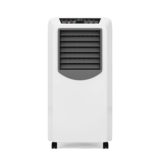
AirEaseThe Pro Series Systems
AirEase is built for life. Yours. Every component is made with craftsmanship, quality and pride, to offer more to discerning homeowners, and the professional dealers who keep them comfortable.
Features
App Controlled
Voice Activated
Allergy Sync
Away Sync
Schedule Sync
Voice Activated
Allergy Sync
Away Sync
Schedule Sync
Comfort Sync A3 Thermostat

AirEaseComfort Sync A3 Thermostat
Enjoy sophisticated system management, unprecedented control and exceptional energy savings with a Comfort Sync thermostat. It's the best way to get the most out of every part of your AirEase system.
Features
App Controlled
Voice Activated
Away Sync
Schedule Sync
Zoning
Voice Activated
Away Sync
Schedule Sync
Zoning
Gas Furnaces

AirEaseGas Furnaces
From high-efficiency gas valves and two-stage heating to our patented EHX Technology, AirEase gas furnaces use advanced designs to bring more to every home.
PRO SERIESVariable Speed Blower & Multi-Stage Performance
AirEase's most advanced furnaces deliver the highest number of features, the most comfort and the greatest efficiency.
Constant Torque Blower & Single-Stage Performance
For the perfect balance between performance and value, look to AirEase furnaces with constant torque motors.
Oil Furnaces

AirEaseOil Furnaces
Precision engineering and true craftsmanship make AirEase oil furnaces a smart choice for homeowners in more northern climates.
Variable Speed Blower
Adjustable fan speeds mean higher efficiency, quieter operation and more consistent comfort.
Single-Stage Performance
Hardworking, dependable and efficient warmth, winter after winter.
Air Conditioners

AirEaseAir Conditioners
Inside AirEase air conditioners, you'll find a wealth of smart ideas including efficiency-boosting MHT Technology, swept-wing fan blades and advanced sound reduction.
PRO SERIESVariable-Capacity Performance
Unlike conventional air conditioners that are either all the way on or all the way off, the Variable-Capacity Inverter-Driver Scroll Compressor adjusts cooling output in small increments like a dimmer switch.
PRO SERIESTwo-Stage Performance
With two different cooling output speeds, these exceptional performers offer the ideal balance between smart energy use and serious comfort.
Single-Stage Performance
Enjoy consistent, reliable cooling and a home full of refreshing air.
Heat Pumps

AirEaseHeat Pumps
AirEase heat pumps offer an impressive array of comfort technology, including MHT Technology, QuietShift Technology and advances sound reduction.
PRO SERIESVariable-Capacity Performance
Unlike conventional heat pumps that are either all the way on or all the way off, the Variable-Capacity Inverter-Driver Scroll Compressor adjusts cooling output in small increments like a dimmer switch.
PRO SERIESTwo-Stage Performance
Two different output speeds for heating and two for cooling allow AirEase heat pumps to keep you comfortable month after month.
Single-Stage Performance
Whether it's warm or cool, you'll be perfectly comfortable with these reliable heat pumps.
Package Units

AirEasePackage Units
From multi-stage heating and cooling to dual-fuel performance, our full line of package units gives you many options for controlling your home's temperature and energy usage.
Variable-Speed, Multi-Stage Heating and Cooling
PRP16 units offer multi-stage heating and cooling for an ideal combination of quiet performance and efficiency. The 16 SEER units may help you qualify for utility rebates and other energy incentives, while a dedicated air purifier with UVA lamp helps make your home healthier.
Air Handlers

AirEaseAir Handlers
Experts choose air handlers from AirEase because of their application flexibility, performance and efficiency. All units are designed for easy installation and are ideal for closets, attics, crawlspaces and basements of all sizes. Every unit delivers AirEase's commitment to quality craftsmanship, energy-efficient performance and long-lasting reliability.
PRO SERIESHigh Performance Air Handlers
The high-performance BCE7 air handlers deliver efficient temperature and humidity control.
Compact Footprint Air Handlers
Our compact BCE5 air handlers deliver big performance.
Modular Air Handlers
Designed for installation flexibility, modular air handlers are perfect for challenging applications when access is difficult or space is restricted.
What's a
home generator?
A standby home generator keeps your power on during an outage. It's installed outside your house (like an AC unit) and comes on automatically - whether you're home or away. All within seconds of a power outage.
Plus, home generators run on propane or natural gas, so there's no refueling.
Plus, home generators run on propane or natural gas, so there's no refueling.
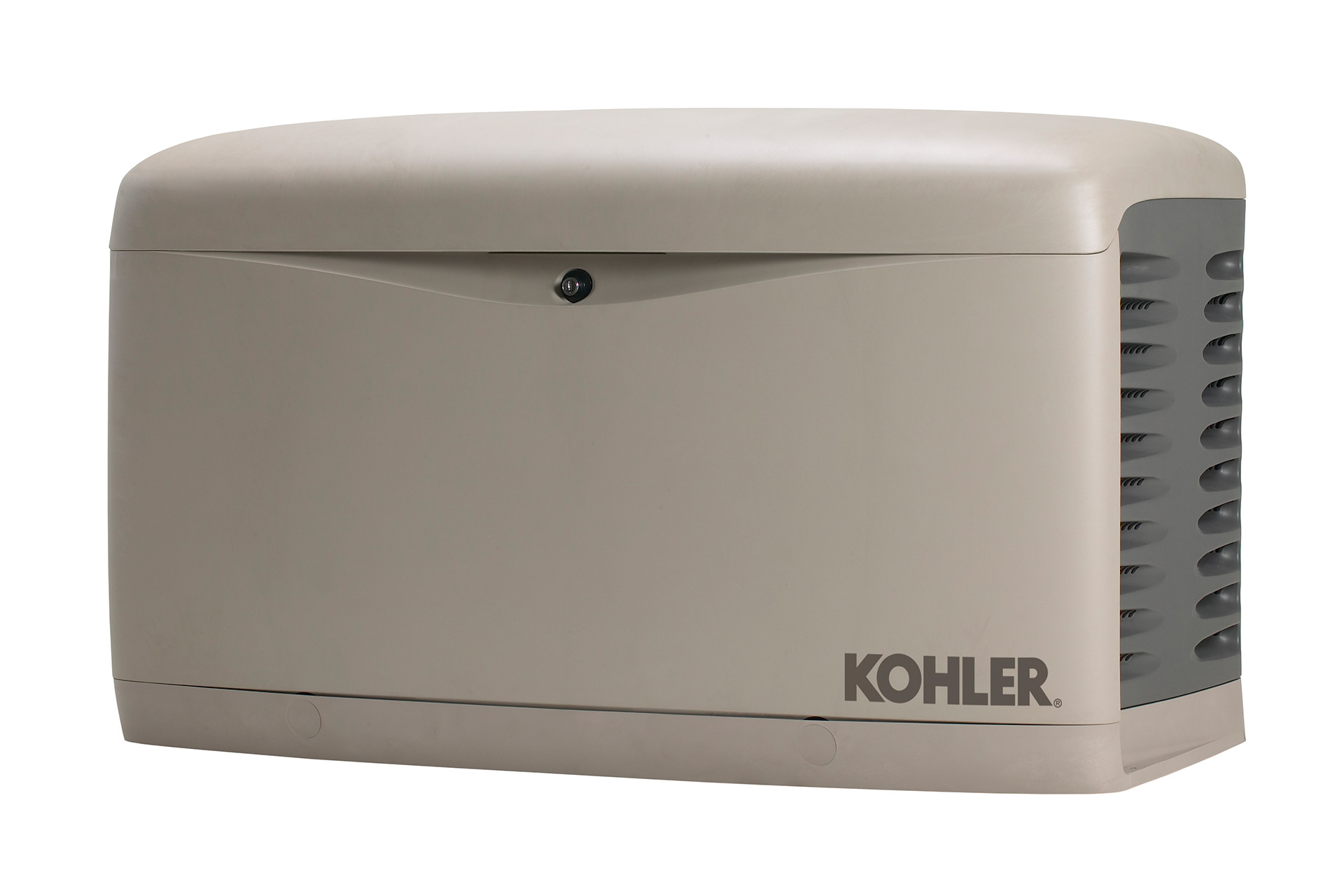
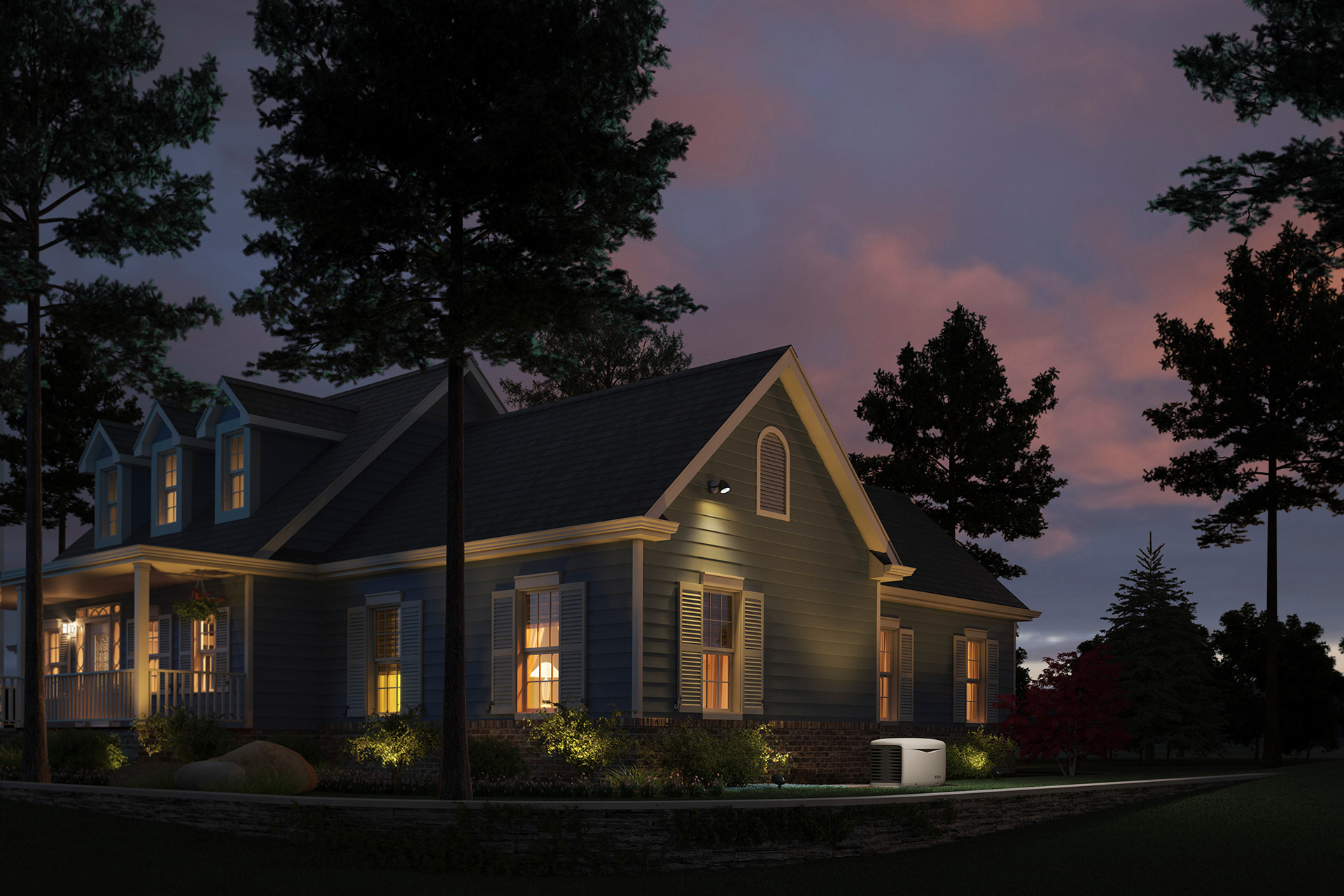
How does a
home generator work?
It's easier than you think. Kohler generators can power your entire home, including critical hard-wired systems like AC, heat, sump pumps, well pumps, security systems and large appliances, as well as smaller devices and other mechanicals such as faucets, toilets, showers and more. It delivers high-quality power and won't harm your electronics.
Before the
power goes out
Your automatic transfer switch (ATS) monitors the electricity coming from the utility. It's working 24/7 to protect your home. This handy little device is located on your automatic transfer switch. It tells you where our home's power is coming from, utility or generator (see colored icons to right).
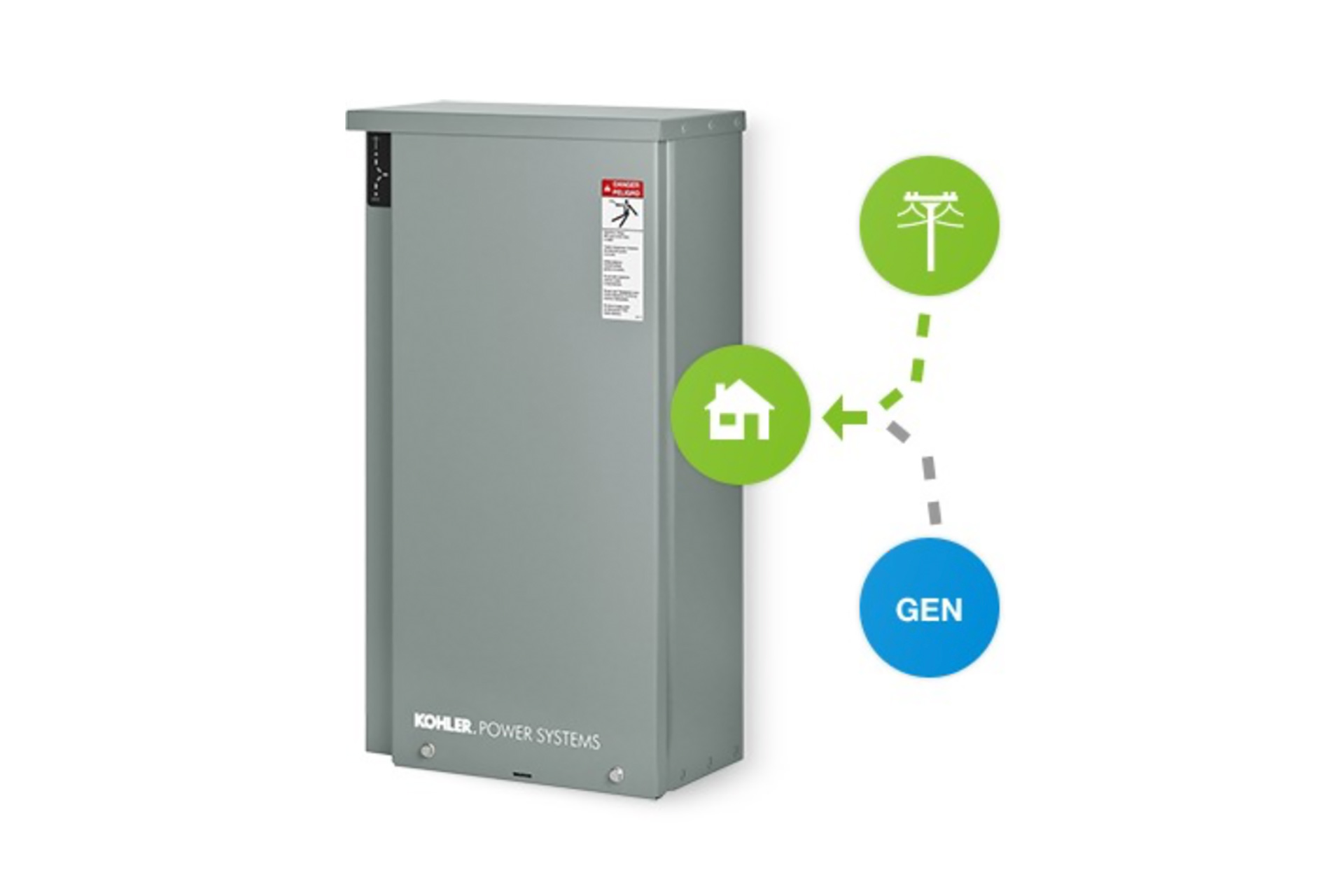

The power
goes out
When the power fails or drops below an acceptable level ( brownout), the ATS signals the generator to start. In seconds, the ATS transfers your power fro the utility to the generator. By the time you read this, your Kohler generator will have started and restored power to your home.
Your generator
powers your home
Your generator then supplies your home with electricity until the stead utility power is restored. Kohler generators endure hundreds of tests (during design and production) before they reach your home. The result is total reliability.
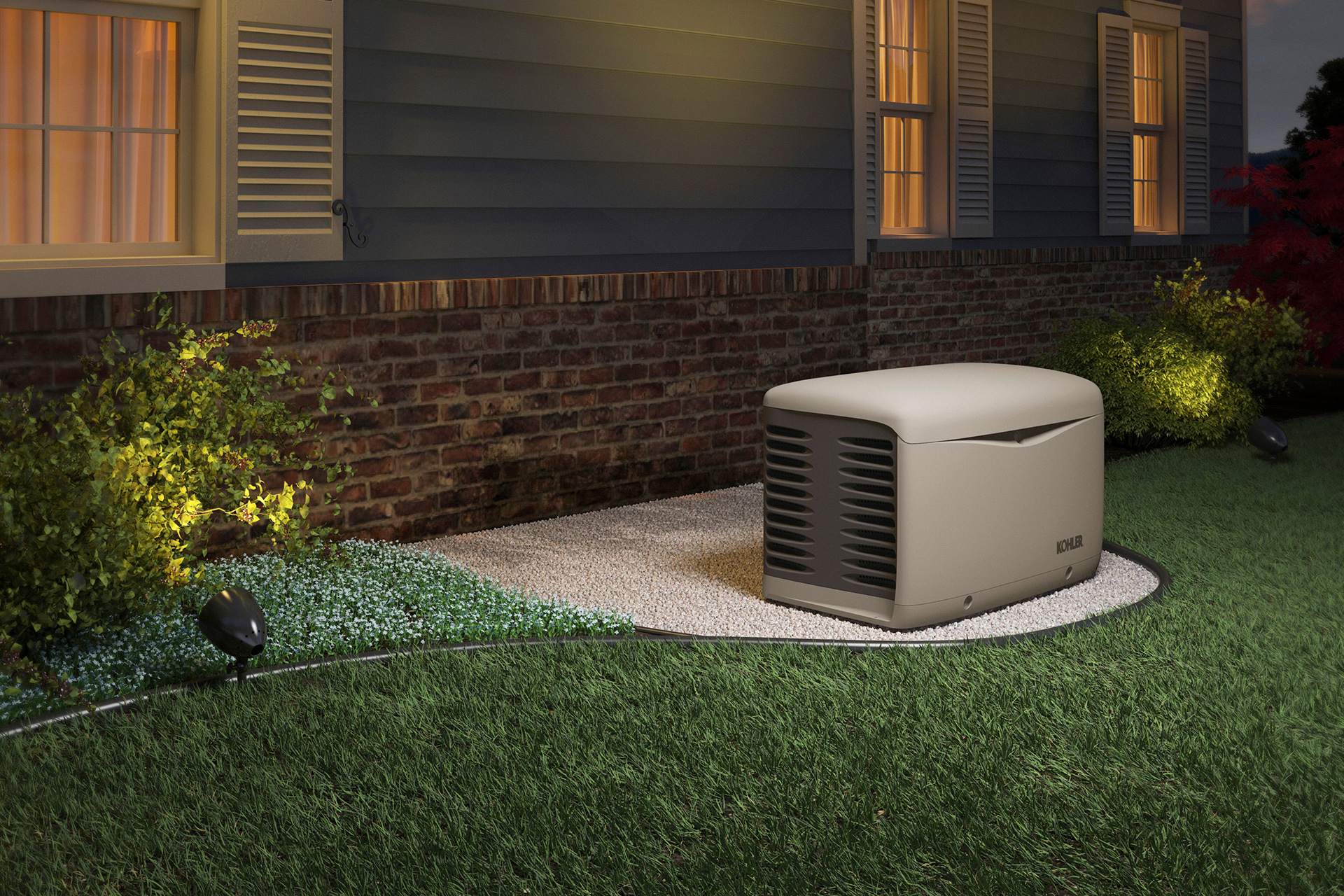

The utility
power returns
When the utility is restored, the ATS automatically transfers your power from the generator to the utility.
Your generator
turns off
Your standby generator automatically shuts down, ready for the next power outage.


Gas FurnaceVariable Speed Blower & Multi-Stage Performance
AirEase's most advanced furnaces deliver the highest number of features, the most comfort and the greatest efficiency.

Gas FurnaceVariable Speed Blower & Multi-Stage Performance
AirEase's most advanced furnaces deliver the highest number of features, the most comfort and the greatest efficiency.
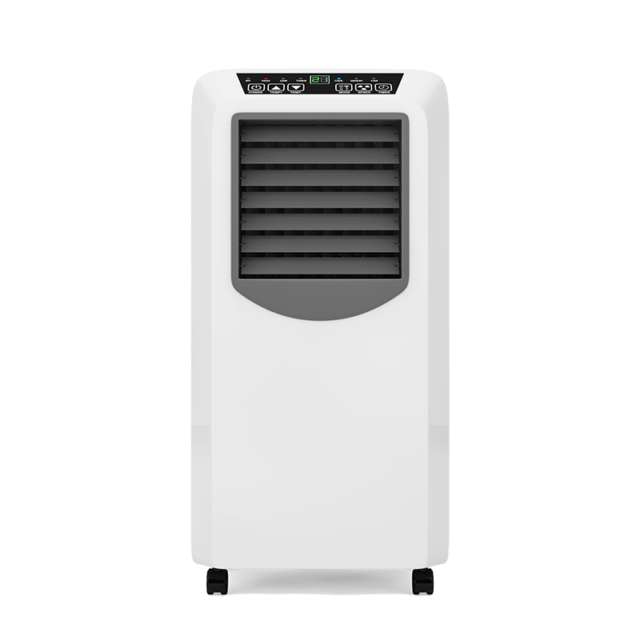
AirEaseThe Pro Series Systems
AirEase is built for life. Yours. Every component is made with craftsmanship, quality and pride, to offer more to discerning homeowners, and the professional dealers who keep them comfortable.
Features
App Controlled
Voice Activated
Allergy Sync
Away Sync
Schedule Sync
Voice Activated
Allergy Sync
Away Sync
Schedule Sync

AirEaseComfort Sync A3 Thermostat
Enjoy sophisticated system management, unprecedented control and exceptional energy savings with a Comfort Sync thermostat. It's the best way to get the most out of every part of your AirEase system.
Features
App Controlled
Voice Activated
Away Sync
Schedule Sync
Zoning
Voice Activated
Away Sync
Schedule Sync
Zoning

AirEaseGas Furnaces
From high-efficiency gas valves and two-stage heating to our patented EHX Technology, AirEase gas furnaces use advanced designs to bring more to every home.
PRO SERIESVariable Speed Blower & Multi-Stage Performance
AirEase's most advanced furnaces deliver the highest number of features, the most comfort and the greatest efficiency.
Constant Torque Blower & Single-Stage Performance
For the perfect balance between performance and value, look to AirEase furnaces with constant torque motors.

AirEaseOil Furnaces
Precision engineering and true craftsmanship make AirEase oil furnaces a smart choice for homeowners in more northern climates.
Variable Speed Blower
Adjustable fan speeds mean higher efficiency, quieter operation and more consistent comfort.
Single-Stage Performance
Hardworking, dependable and efficient warmth, winter after winter.

AirEaseAir Conditioners
Inside AirEase air conditioners, you'll find a wealth of smart ideas including efficiency-boosting MHT Technology, swept-wing fan blades and advanced sound reduction.
PRO SERIESVariable-Capacity Performance
Unlike conventional air conditioners that are either all the way on or all the way off, the Variable-Capacity Inverter-Driver Scroll Compressor adjusts cooling output in small increments like a dimmer switch.
PRO SERIESTwo-Stage Performance
With two different cooling output speeds, these exceptional performers offer the ideal balance between smart energy use and serious comfort.
Single-Stage Performance
Enjoy consistent, reliable cooling and a home full of refreshing air.

AirEaseHeat Pumps
AirEase heat pumps offer an impressive array of comfort technology, including MHT Technology, QuietShift Technology and advances sound reduction.
PRO SERIESVariable-Capacity Performance
Unlike conventional heat pumps that are either all the way on or all the way off, the Variable-Capacity Inverter-Driver Scroll Compressor adjusts cooling output in small increments like a dimmer switch.
PRO SERIESTwo-Stage Performance
Two different output speeds for heating and two for cooling allow AirEase heat pumps to keep you comfortable month after month.
Single-Stage Performance
Whether it's warm or cool, you'll be perfectly comfortable with these reliable heat pumps.

AirEasePackage Units
From multi-stage heating and cooling to dual-fuel performance, our full line of package units gives you many options for controlling your home's temperature and energy usage.
Variable-Speed, Multi-Stage Heating and Cooling
PRP16 units offer multi-stage heating and cooling for an ideal combination of quiet performance and efficiency. The 16 SEER units may help you qualify for utility rebates and other energy incentives, while a dedicated air purifier with UVA lamp helps make your home healthier.

AirEaseAir Handlers
Experts choose air handlers from AirEase because of their application flexibility, performance and efficiency. All units are designed for easy installation and are ideal for closets, attics, crawlspaces and basements of all sizes. Every unit delivers AirEase's commitment to quality craftsmanship, energy-efficient performance and long-lasting reliability.
PRO SERIESHigh Performance Air Handlers
The high-performance BCE7 air handlers deliver efficient temperature and humidity control.
Compact Footprint Air Handlers
Our compact BCE5 air handlers deliver big performance.
Modular Air Handlers
Designed for installation flexibility, modular air handlers are perfect for challenging applications when access is difficult or space is restricted.
WHAT WE DOWe offer reliable services for
most heating systems
SPECIAL OFFER$74 off $135 worth of home A/C freon test
Courtesy may not be the first thing people think of when it
comes to plumbing, but for us.
comes to plumbing, but for us.
Secure and trouble-free
services for your home
Courtesy may not be the first thing people think of when it comes to plumbing, but for us, it's one of the most important tools we carry.
Request Service
Come and visit our quarters or simply send us an email anytime you want. We are open to all suggestions from our audience.
Our support
Commercial hot water & boiler services of any kind.
Collection services work best for those who’ll be in one location for most of the day, maybe you work from home, or have consignments that need to be collected from the office.
310 West 14th North Street, Suite 21
New York, NY 10010
Phone: +88 (0) 101 0000 000
Fax: +88 (0) 202 0000 001
info@bold-themes.com
support@bold-themes.com
